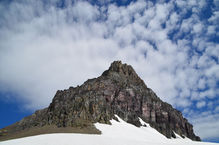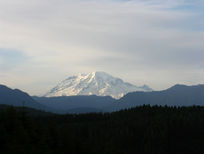top of page

TMart's Cloud ID Gallery
I have been photographically documenting clouds for over two decades. The variation and structure amaze me and I hope with these images, you can appreciate some of the beauty of the natural world. Clouds are frequently classified based on the elevation of the condensation level or cloud base. In this case High, Middle and Low altitude clouds. Below is a selection of my personal collection of cloud images with an effort to display individual examples. Frequently clouds appear in more complex combinations. Take some time to scroll through the gallery and enjoy the sky above.
High Altitude Clouds Condensation level above 6,000 m
Contrail Clouds
Contrails are clouds made of ice crystals that typically form around the condensation nuclei produced by high altitude jet airplanes.
Cirrus Clouds
Cirrus clouds are made of ice crystals . Often blown by high altitude winds, they take on a wispy or curly appearance much like blown hair.
Cirrocumulus Clouds
Cirrocumulus clouds are among the highest altitude of the common types of clouds. They are made of ice crystals and often have a puffy or ribbed texture. sometimes they appear as fish scales. They may be identified as the smallest cumulo-form clouds (smaller than a finger held at arms length.)
Cirrostratus Clouds
Cirrostratus clouds are also ice clouds. They appear as other cirrus clouds and they cover a larger portion of the sky. They may be identified by clearly seeing the sun or moon and often circumscribed by a ring or accompanied by other colorful atmospheric phenomenon.
Middle Altitude Clouds Condensation level between 2,000 and 6,000m
Altocumulus Clouds
Altocumulus are middle altitude small "puffy" clouds that typically cover a large portion of the sky. They often show dramatic colors at sunrise or sunset.
Altostratus Clouds
Altostratus clouds form a high blanket of white / grey clouds that cover the sky. They are often identified by seeing other clouds below or by being able to see the general location of the Sun, but not seeing it directly.
Low Altitude Clouds Condensation level below 2,000 m
Convective Clouds
Cumulus Clouds
Cumulus clouds are formed through convection. These heaped or "puffy" vertically growing clouds almost always have a distinct flat bottom.
Cumulonimbus Clouds
Cumulonimbus are the tallest clouds. Although they are classified as a low cloud with a low condensation level, these clouds may reach as high as 12,000 m . These clouds produce thunderstorms, with significant precipitation, hail, lightning and Thunder.
Stratiform Clouds
Stratocumulus Clouds
Stratocumulus clouds are flat layered clouds that show some aspects of clumping together. They frequently may be seen after a rain.
Stratus Clouds
Stratus clouds are flat layered clouds with little or no definition. These sheet like layered clouds frequently cover the entire sky.
Nimbostratus Clouds
Nimbostratus clouds are a stratus cloud that produces precipitation. Keep in mind that this is not just rain, but most snow also comes from nimbostratus clouds.
Fog Clouds
Fog is the lowest cloud with a condensation level that touches the Earth's surface. Fog is often distinguished by the method through which it forms. Four common types of fog include, Radiation fog (also known as ground fog), Steam fog, Advection fog, and Up-slope fog.
Other Clouds
Besides the clouds documented above there are a wide variety of sub-types or special clouds including: Wave clouds, Lenticular clouds, Mammatus clouds and many more
bottom of page
















































































